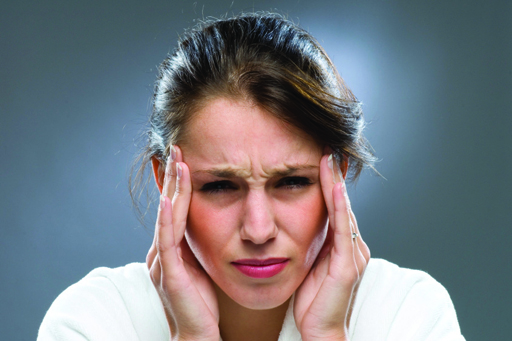Menstrual migraine
In Clinical
Follow this topic
Bookmark
Record learning outcomes
Scenario
Jane Goldsmith is buying some OTC ibuprofen and paracetamol.
“They’re for Lauren,” she tells technician Vicky. “I don’t know what is going on with her, but she gets these terrible headaches. At first I thought she was just trying to get out of school, but she seems in genuine pain and the way she goes and lies down with the curtains drawn, it’s like she has a migraine. It seems to happen whenever her period is due.”
“She’s not on the pill or anything like that, is she?” asks Vicky.
“Gosh no, she’s only 14!” replies Janet. “She was a late starter too. I’m sure it will settle down in time. She’s just being a bit rubbish with the whole periods thing.”
“I’m not sure that’s the case,” says Vicky. “I think there may be something else going on here.”

Answer
Lauren sounds to be suffering from menstrual migraine, a condition associated with the dramatic drop in oestrogen that happens just before a period and the release of prostaglandins during the first 48 hours of menstruation. In its guidance on the diagnosis and management of headaches in over 12s, the National Institute of Health and Care Excellence (NICE) states that menstrual-related migraine should be suspected in women and girls whose migraine occurs predominantly between two days before and three days after the start of menstruation in at least two out of three consecutive menstrual cycles. Vicky could recommend that Lauren keep a headache diary for a few months to see if this is, in fact, the case. It also has the benefit of helping Lauren feel a bit more in control of the condition, and providing a way of demonstrating the impact it has on her life should she decide to seek medical assistance.
Assuming it is menstrual migraine that Lauren is experiencing, there are several potential treatment options. If Lauren is experiencing heavy periods as well as the headaches, the non-steroidal anti-inflammatory drug (NSAID) mefenamic acid might be a good course of action to try, whereas a hormonal contraceptive may be an option if she is after a more regular menstrual cycle and requires birth control. Anti-migraine medication such as triptans are another possibility.
Self-help measures that may prevent a migraine occurring include eating small frequent snacks to keep blood sugar levels stable, avoiding missing meals, having a regular sleep pattern, and minimising stress.
The bigger picture
Women are much more likely to be migraine sufferers than men – three times as many women are affected as men – and this is thought to be due to the influence of the hormone oestrogen. Around one in seven people are migraineurs, making it third only to dental caries and tension-type headache as the most common disease in the world, with more than three-quarters of sufferers experiencing at least one attack per month.
Migraine is often dismissed as “just a headache” but globally it is ranked as the seventh most disabling disease, and the leading cause of disability among all neurological disorders. It is costly, both to the NHS, with GP visits and prescription drugs estimated at some £150 million per year, and to society as a whole: the UK population is thought to lose 25 million days from work or school each year, with the financial burden on the UK economy put at just under £3.5 billion. The ongoing impact can be profound, with depression three times more common in people with migraine than those who are healthy.
Extend your learning
- TM’s headache and migraine feature goes into more depth about migraine, particularly in children.
- Would you feel confident distinguishing a migraine from a tension-type headache and a cluster headache? Refresh your knowledge by looking through section 1.2.1 of the NICE guidance
- Aura is probably the symptom most strongly associated with migraine, and this varies hugely from person to person. Read the information from the Migraine Trust to check your understanding of what may happen
- For some women, the hormonal changes that take place during pregnancy can trigger headaches. Find out when this may mean that something more serious is going on that warrants medication attention at NHS Choices – Headaches in pregnancy
- Have a look at the Migraine Trust’s information on migraine diaries and the template.
